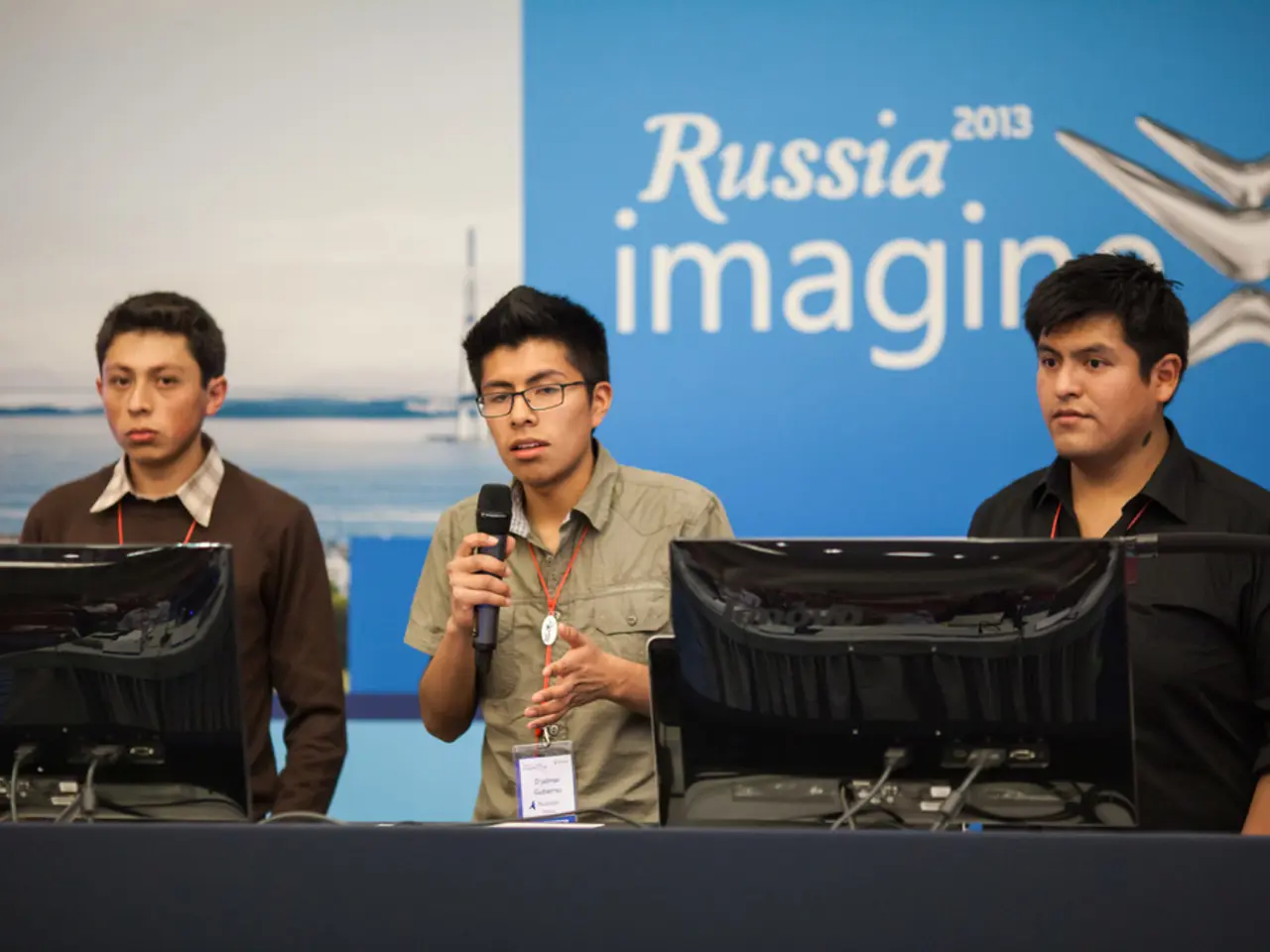U.S. authorities impose sanctions on North Korean individuals involved in deceitful IT labor practices
The United States has taken significant steps to disrupt North Korea's illicit financial networks and revenue generation schemes, as the U.S. Department of the Treasury's Office of Foreign Assets Control (OFAC) imposed sanctions on the Korea Sobaeksu Trading Company and associated individuals.
Sanctioned Entities and Individuals
The Korea Sobaeksu Trading Company, also known as Sobaeksu United Corporation, has been sanctioned for its role in facilitating sanctions evasion and generating revenue for the North Korean regime. Three North Korean nationals – Kim Se Un, Jo Kyong Hun, and Myong Chol Min – are also targeted by the sanctions. Kim Se Un is associated with collecting money through remote IT worker schemes, Jo Kyong Hun is involved in cryptocurrency aspects of these schemes, and Myong Chol Min helps facilitate business deals while avoiding sanctions.
Nature of the Sanctions
The purpose of these sanctions is to disrupt North Korea's non-traditional revenue streams, which are used to fund the regime's illegal nuclear and ballistic missile programs, as well as other geopolitical activities. The sanctions freeze assets and block transactions under U.S. jurisdiction, making it difficult for these entities to operate financially within the U.S. or with U.S. entities.
Background of the IT Worker Schemes
North Korea dispatches highly skilled IT workers to places like China, Russia, and Vietnam to obtain remote jobs. These workers use fraudulent documents, stolen identities, and false personas to infiltrate companies, often with the help of facilitators running laptop farms. These schemes pose a global threat, allowing North Korea to illegally access and exploit international financial systems and company data.
Broader Context
The U.S. Treasury's actions are part of a collaborative effort with other departments and agencies to counter North Korea's sanctions evasion activities and revenue generation schemes. These sanctions follow previous rounds of sanctions imposed by OFAC, underscoring the U.S. government's ongoing efforts to dismantle North Korea's illicit financial networks.
The FBI has seized the operatives' devices and cryptocurrency in relation to the IT-worker scams, and the Justice Department is charging Kim, Myong, and five other North Koreans for sanctions-evasion activities, including buying and selling tobacco to obtain U.S. dollars. Federal prosecutors announced charges in two separate IT-worker scams in June.
The FBI warns businesses to be vigilant against North Korean scams, highlighting the potential vulnerabilities of outsourcing IT work to third-party vendors. In recent years, North Korean IT workers have infiltrated U.S. companies, exfiltrating proprietary data and other information.
The State Department is offering up to $15 million in rewards for information leading to the arrest of any of the seven defendants. These charges, sanctions, and reward offers are part of a renewed effort by U.S. officials to combat North Korea's use of remote IT worker schemes.
- The sanctions imposed by the U.S. Department of the Treasury's Office of Foreign Assets Control (OFAC) target not only the Korea Sobaeksu Trading Company but also three North Korean nationals, with Kim Se Un being associated with remote IT worker schemes, Jo Kyong Hun involved in cryptocurrency aspects, and Myong Chol Min facilitating business deals while evading sanctions, illustrating the cybersecurity concerns and the role of technology in these activities.
- The cybersecurity implications of North Korea's IT worker schemes extend beyond direct financial transactions, as these workers, with the help of facilitators running laptop farms, pose a global threat by illegally accessing and exploiting international financial systems and company data, creating a broader concern for the general-news and crime-and-justice communities.
- The illegal activities of North Korean IT workers, including those sanctioned by OFAC, pose challenges not only for cybersecurity but also for politics, as these activities are used to generate revenue for the North Korean regime, funding its illegal nuclear and ballistic missile programs, as well as other geopolitical activities, making it a significant concern for both domestic and international policies.




